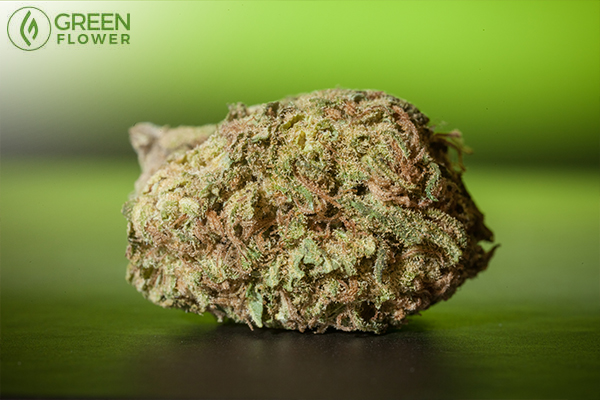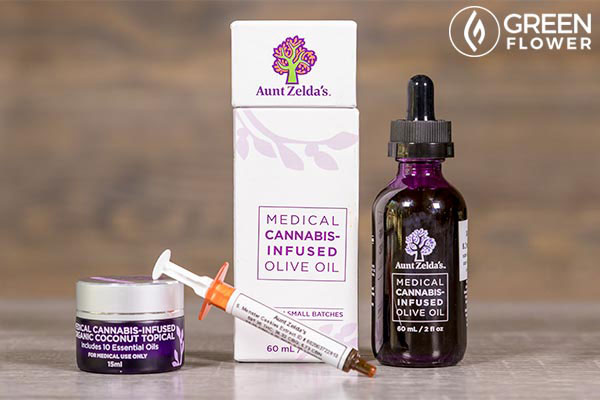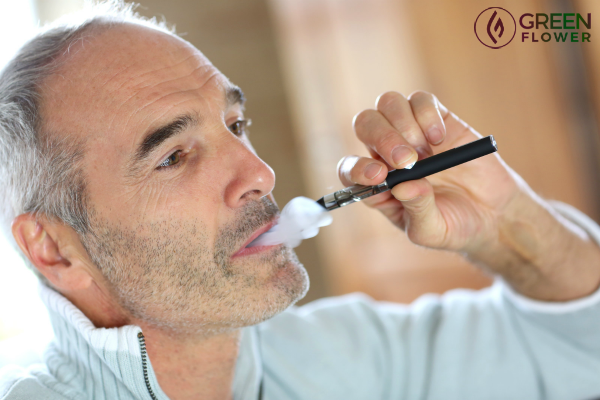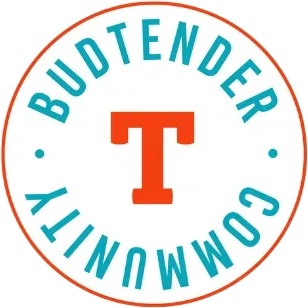
While all cannabis consumers deserve safe products, those who rely on the herb for medical treatment have reason to be picky.
The cannabis industry has often been described as “the new wild west”. There are more medical cannabis products available than ever before, with new brands entering the marketplace seemingly every day.
This innovation is excellent news for patients, but regulations and quality control have yet to catch up to the rapidly evolving product market.
Quality testing laws vary from state to state, with some requiring only the levels of THC and CBD be reported. Many popular products, like vapor pens, have yet to be subject to rigorous consumer safety testing.
With little standardization, patients are left with the burden of finding and sourcing the best medical cannabis material themselves.
Unfortunately, not all products are created equal.
To help you avoid bad medical cannabis products, here are a few helpful tips for sourcing high-quality material:
Trust your instincts

Dried flower is still one of the most popular medical cannabis products around, and it is prone to contamination from mold and residual pesticides.
While some states require batch testing to ensure products are safe for consumers, a moldy sample or two can still slip through the cracks.
In addition to quality testing standards, one of the best ways to avoid bad medical cannabis is to simply trust your instincts.
Does your flower smell or taste a little off? If so, chances are it’s not up to par.
- Avoid flower that seems too wet
- Avoid flower with visible white or gray fuzz
- Avoid flower with a strong musty, sweet aroma (like a damp basement smell)
- Stop consuming flower that causes chest pain with inhalation
- Stop consuming flower that seems to trigger or worsen allergy or asthma attacks
Contaminated cannabis is particularly risky for medical cannabis consumers with compromised immune systems. While a healthy consumer might be able to bounce back after inhaling a few mold spores, others risk developing lung infections that can lead to larger health problems down the line.
Research your brands

Though not all states and regions require rigorous quality testing, some savvy brands still opt to test their products on their own accord. Similar to the organic food movement, considerate cannabis companies do their homework before mass producing medicinal products.
If you’re searching for specific types of products, it is worthwhile to do some research. While this can be a hassle, taking an active approach to health can save you from consuming medical cannabis products that have a greater risk of side effects or long-term harm.
- Peruse dispensary menus in your area for common products
- Visit the product website for ingredient lists
- Contact providers with questions about ingredients and testing practices
- Ask your dispensary or access point about how they source their products
When possible, opt for products and brands that have been laboratory tested. This is the safest way to ensure that you’re getting high-quality material.
Most testing reports:
- Levels of active cannabinoids
- Residual solvents
- Molds and pathogens
- Residual pesticides and fungicides
Avoid products that contain harmful additives

Vapor pens are more popular than ever. However, some pens may be safer than others.
A recent study published in the Journal of Alternative and Complementary Medicine tested the four most common cutting agents used in both e-cigarettes as well as cannabis and CBD vape pen cartridges.
The safest vapor pens do not use cutting agents at all. The second safest option is to opt for products that use vegetable glycerine as a cutting agent, which does not seem to emit toxins at high temperatures.
The study, along with a 2015 investigation by Project CBD, found that three of the four agents break down into toxic compounds when heated over 446℉ (230℃).
Here’s why you should avoid these additives:
#1) Propylene glycol
Propylene glycol (PG) is sometimes advertised as a plant-based additive. It’s frequently used as an emulsifier, to help prevent liquid ingredients from separating. Under high heat, propylene glycol transforms into formaldehyde, a known irritant and carcinogen.
#2) Polyethylene glycol
Polyethylene glycol (PEG) is another emulsifier, though this one is thought to be more harmful than PG. When heated to high temperatures, PEG breaks down into both formaldehyde and acetaldehyde.
Acetaldehyde occurs naturally in fruits and grains. It is the compound known to contribute to the hangover effect of alcohol and is thought to be carcinogenic.
#3) Medium-chain triglycerides
Medium-chain triglycerides (MCTs), like coconut oil, are considered very healthy to eat. Inhaling them, however, may not be the best move for your health.
MCT oils release small amounts of acetaldehyde when heated to high temperatures. MCT oils released 33 times less acetaldehyde than PEG.
Go Organic
The word “organic” in the cannabis industry comes with a grain of salt. In the United States, “organic” is actually a marketing term that can only be awarded for products that have gone through the steps of organic certification.
As a Schedule I controlled substance, cannabis cannot be certified as organic under the U.S. marketing label. Instead, pop-up companies, like Certified Kind, offer a private organic certification that ensures that brands that call themselves organic are following the correct protocols.
Some dispensaries and brands may also self-monitor by sourcing materials that have been produced using organic practices.
In early 2017, California-based Steep Hill Labs collected samples from randomly selected medical dispensaries in Southern California. They found that 93 percent of samples failed to pass tests for residual pesticides.
While some of these pesticides may be considered safe to consume in foods, heating these compounds and then inhaling them is another story.
Like cutting agents in vapor cartridges, many pesticides and fungicides can break down into toxic and carcinogenic compounds when heated. These pollutants are then easily taken into the bloodstream after entering the lungs.
The only sure-fire way to avoid these pollutants is to opt for organically grown products, which can take some time and research to find.
Final tips for avoiding bad medical cannabis products
As the cannabis industry grows and evolves, consumer safety is taking center stage. While there are still a lot of bunk products out there, cannabis is safer than ever before. Like sourcing ethical and safe foods, finding the best medical cannabis products takes some effort and attention.
However, as consumers shape demand for high-quality products, more brands will begin to use healthier cultivation and processing practices. To summarize, here are some final tips for avoiding bad medical cannabis products:
- Finding the best products takes time and research up front
- Seek out brands and locations that test their products
- Listen to your body and avoid products that cause irritation
- Seek out growers, brands, and dispensaries that utilize or source organic products
- Opt for products that are as pure as possible, without cutting agents or additives
– This article was originally posted at Green Flower
About CannabisNewsWire
CannabisNewsWire (CNW) is an information service that provides (1) access to our news aggregation and syndication servers, (2) CannabisNewsBreaks that summarize corporate news and information, (3) enhanced press release services, (4) social media distribution and optimization services, and (5) a full array of corporate communication solutions. As a multifaceted financial news and content distribution company with an extensive team of contributing journalists and writers, CNW is uniquely positioned to best serve private and public companies that desire to reach a wide audience of investors, consumers, journalists and the general public. CNW has an ever-growing distribution network of more than 5,000 key syndication outlets across the country. By cutting through the overload of information in today’s market, CNW brings its clients unparalleled visibility, recognition and brand awareness. CNW is where news, content and information converge.
To receive instant SMS alerts, text CANNABIS to 21000 (U.S. Mobile Phones Only)
For more information please visit https://www.cannabisnewswire.com
Please see full terms of use and disclaimers on the CannabisNewsWire website applicable to all content provided by CNW, wherever published or re-published: http://CNW.fm/Disclaimer
Do you have a questions or are you interested in working with CNW? Ask our Editor
CannabisNewsWire (CNW)
Denver, Colorado
www.cannabisnewswire.com
303.498.7722 Office
Editor@CannabisNewsWire.com
This article contains Third-Party Content submitted by third parties, including articles submitted through the CNW Premium Partnership Program. All opinions, statements and representations expressed by such third parties are theirs alone and do not express or represent the views and opinions of CNW or its affiliates and owners. Content created by third parties is the sole responsibility of such third parties, and CNW does not endorse, guarantee or make representations concerning the accuracy and completeness of all third-party content. You acknowledge that by CNW providing you with this internet portal that makes accessible to you the ability to view third-party content through the CNW site, CNW does not undertake any obligation to you as a reader of such content or assume any liability relating to such third-party content. CNW expressly disclaims liability relating to such third-party content. CNW and its members, affiliates, successors, assigns, officers, directors, and partners assume no responsibility or liability that may arise from the third-party content, including, but not limited to, responsibility or liability for claims for defamation, libel, slander, infringement, invasion of privacy and publicity rights, fraud, or misrepresentation, or an private right of action under the federal securities laws of the United States or common law. Notwithstanding the foregoing, CNW reserves the right to remove third-party content at any time in its sole discretion.



















